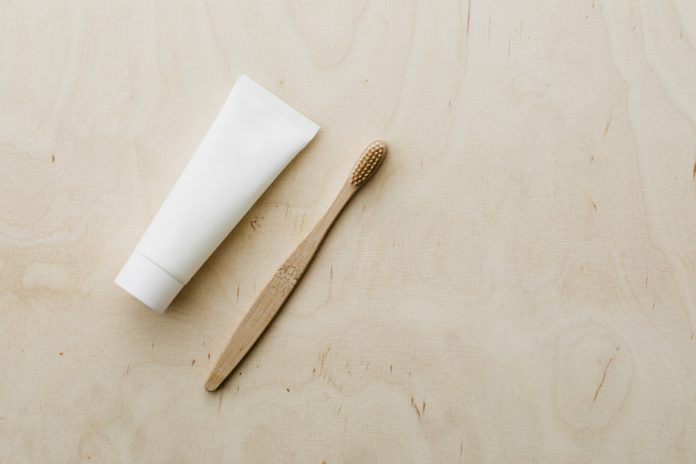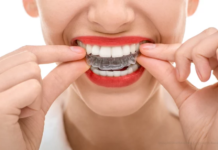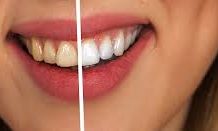Nowadays, charcoal has increased; it is everywhere and in everything. For good dental care, Charcoal toothpaste or black toothpaste is one of the best options. Even Kendall Jenner (Hollywood’s most famous model) hawked a charcoal-based tooth brand called Moon on her Instagram. Many people have witnessed that charcoal toothpaste works effectively on teeth coloration, protecting them from germs and infections. However, everything has its pros and cons.
So, let’s discuss more Charcoal toothpaste and its pros and cons. Also, focus on whether charcoal toothpaste works or not:
What is activated charcoal?
As we all know, charcoal-based toothpaste is toothpaste with activated charcoal, so let’s learn about what is activated charcoal?
The activated charcoal, unlike plain charcoal, has more surface area, which leads to high adsorptive power. This adsorptive power makes the activated charcoal capable of removing unwanted substances from the teeth.
Activated charcoal for dental purposes started in the 20th century and is generally used for teeth whitening.
The activated charcoal is derived from the carbon powder obtained after burning the olive pits or mainly coconut shells. To make the carbon powder active, it’s passed through a high heat, making it highly porous.
The highly porous structure and the negative charge on the activated charcoal make it attract the positive charge, which is highly present in tooth stains.
Read More- How Long Does A Root Canal Procedure Take?
Is charcoal toothpaste safe?
According to experts’ research till now, it is safe to use charcoal toothpaste. However, before using any dental product, it is recommended to ask the dentist whether the charcoal paste is good for you or not.
Here is what experts have observed till now:
- Charcoal toothpaste can be abrasive for daily use:
Charcoal-based toothpaste is very abrasive on teeth that can lead to wear down of enamel. This makes the teeth look yellow and more sensitive.
- Most brands making charcoal toothpaste do not include fluoride:
As we all know, fluoride makes the enamel more strong and helps teeth fight against cavities and decay. So, before using any charcoal toothpaste, make sure that it contains fluoride.
- It might cause stain:
Charcoal toothpaste can gather in the cracks and crevices of older teeth and make them stain. So, if you have cracks on your teeth, you should not use charcoal-based toothpaste.
- Charcoal effects the dental restoration:
It is not identified how charcoal affects the material used for making veneers, crowns, bridges, and white fling. The charcoal can gather in between them and make them look black or gray.
Does charcoal toothpaste work in the whitening process?
Activated charcoal-based toothpaste is considered to remove surface stains on teeth as it is abrasive and absorbs stains on the tooth surface to some degree.
There is no specific research on the whitening process of charcoal toothpaste. However, activated charcoal toothpaste does have some proven benefits.
To maintain the white color of teeth, toothpaste needs to work on stains on the intrinsic and surface stains.
Intrinsic stains can be caused by specific medications, fluoride exposure, and medical conditions.
What are the pros of Charcoal toothpaste:
The following are popular benefits of charcoal toothpaste:
- It helps in removing the stains on the surface of teeth
- Charcoal toothpaste may improve the bad breath
- After a professional cleaning, it works effectively on removing stains on the surface of teeth
- Removes plaque and makes the teeth look fresh
Read More- Must-Have Foods To Strengthen Your Teeth
What are the cons of Charcoal toothpaste:
Recently the American Dental Association (ADA) has released a few warnings regarding charcoal-based dental care products.
Some of the common cons of charcoal-based toothpaste are:
- It is very abrasive and can wear down the tooth enamel.
- Make the teeth look yellow.
- It does not remove the stain below the enamel.
- Daily use of charcoal toothpaste can cause sensitivity.
- Many brands of charcoal toothpaste are free of fluoride, which helps to prevent cavities and tooth decay.
- It can stain dental restorations like bridges, veneers, crowns, and white fillings.
- The long-term effects of charcoal-based toothpaste are still not known.
Other products work on whitening teeth:
Many safe and effective options present in the market are endorsed by the American Dental Association (ADA) for whitening the tooth.
Other dental whitening products approved by dentists are:
- Whitening toothpaste
- In-office whitening
- Whitening strips
- Dentist whitening process
- Home remedies
Check whether it has an ADA seal of acceptance, hydrogen peroxide, and blue covering whenever you look for the best teeth whitening products.
These are the best and most effective technologies, according to a study 2019 that compared teeth whitening technologies and toothpaste, including activated charcoal.
Read More- What Is Deep Teeth Cleaning and What Are Its Benefits
Natural remedies for whitening:
Following are some of the best home natural remedies used for whitening and cleaning the teeth thoroughly. However, before using these remedies, consult with your dentist about whether these remedies are good for your teeth or not:
- Lemon
- Baking soda
- Hydrogen peroxide
- Apple cider vinegar
Adding on to the brushing and flossing, these natural home remedies help keep teeth more healthy and white and mainly help remove stains.
Read More- 4 Reasons Why Adults Choose to Have Their Teeth Straightened
The Bottom line:
Although the research on charcoal toothpaste is still going on, however, till now, we can say that it is not as effective as the other whitening toothpaste or home whitening products.
It may help remove the stain present on the surface of enamel, but the long-term effect is still unknown due to limited studies. So, before using charcoal-based toothpaste, it’s recommended to consult with your dentists first to identify whether it is good for you or not.
We hope you found this article informative. If yes, then hit the like button and if you have any more concerns or questions, put them in the comment box below.

















